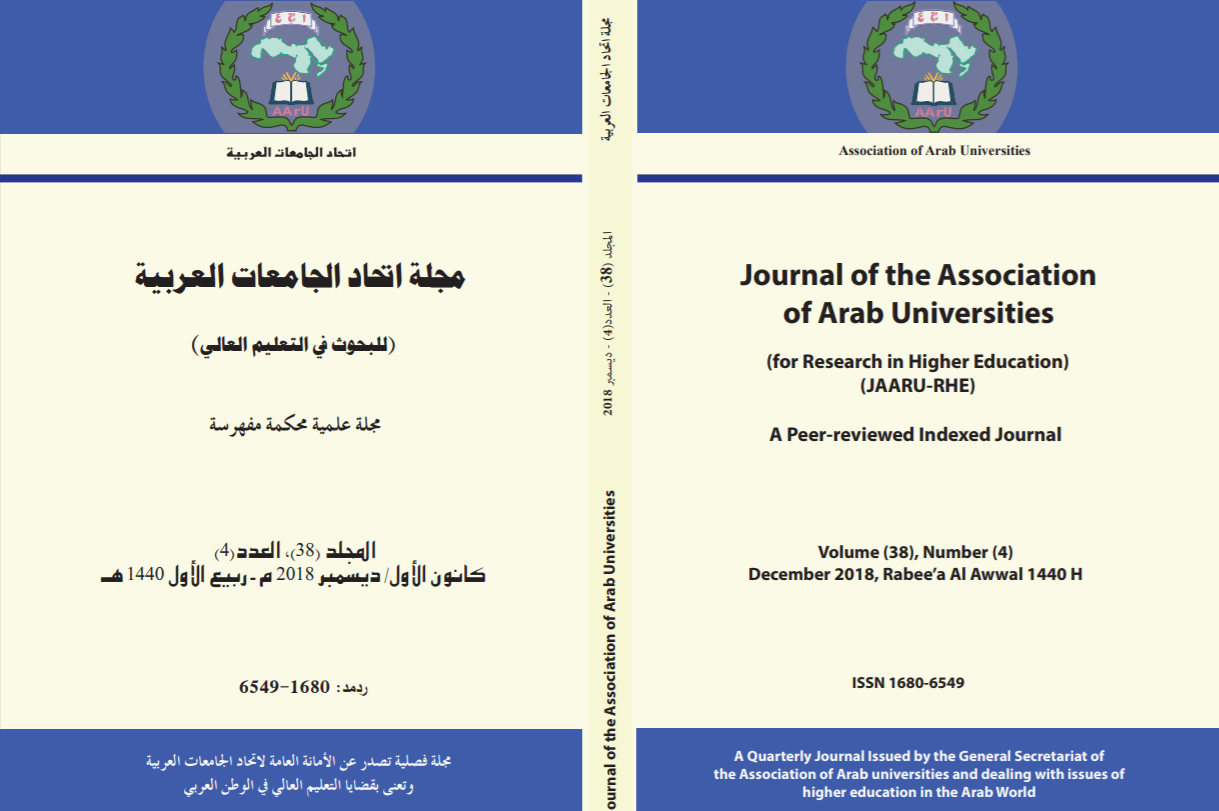Journal of the Association of Arab Universities for Research in Higher Education (مجلة اتحاد الجامعات العربية (للبحوث في التعليم العالي

Abstract
هدف المقال المقارنة بين النموذجين البرلمانيين البريطاني والكويتي، وباستخدام منهجية علمية شاملة معتمدةً على المنهج الوصفي التحليلي، والمنهج المقارن، اتضح نجاح التجربة البرلمانية البريطانية التي ترسخت عبر مئات السنين، وتطورت من سلطة مطلقة للحاكم مستمدة من نظرية الحق الإلهي، وصولاً إلى ترسيخ الحريات والحقوق العامة بفعل القوانين التي صدرت تباعاً، والتي نجم عنها القول أن البرلمان البريطاني يمثل بحق كافة فئات الشعب البريطاني كونه منبثقاً عنه، وكون السلطة التنفيذية ممثلةً بالملك الدستوري الذي يملك ولا يحكم، والوزارة المنبثقة من حزب الأغلبية في البرلمان، أما بالنسبة للتجربة البرلمانية الكويتية، فيمكن القول، أنه وعلى الرغم من حداثة هذه التجربة التي لم تتجاوز السبعة عقود منذ استقلال الكويت (1961)، والتركيبة الاجتماعية القائمة في هذه الدولة، إلا أنه يسجل لمجلس الأمة الكويتي إسهاماته في التحول الديمقراطي مع التسليم بضرورة مرور فترة زمنية طويلة حتى يتم ترسيخ الممارسة الديمقراطية للمجلس، وإزالة المعوقات التي تحيط بهذه التجربة. وفي ضوء ما تم التوصل إليه من نتائج، أوصت الدراسة بالسماح بوجود أحزاب سياسية مشروعة في الكويت ينظمها قانون للأحزاب، وتكون غاياتها إنضاج التجربة الحزبية والتمهيد لقيام الحكومات البرلمانية المنبثقة عن الأغلبية الحزبية الحائزة على أعلى الأصوات في مجلس الأمة الكويتي، وتحسين العلاقة بين مجلس الأمة الكويتي والسلطة التنفيذية من خلال تخفيف الضغوط السياسية على المجلس من قبل الحكومة، مما يساهم في اكتمال دورات الفصول التشريعية في الكويت لمدة أربع سنوات كاملة بموجب المادة (83) من دستور الكويت الصادر سنة 1962.
The article aimed to compare the British and Kuwaiti parliamentary models, using a comprehensive methodology based on the descriptive analytical approach and the comparative approach. The study concluded the success of the British parliamentary experience, which was established over hundreds of years. It evolved from the absolute authority of the ruler derived from the theory of divine right, leading to the consolidation of public freedoms and rights by the laws that were issued successively, which resulted in saying that the British Parliament truly represents all groups of the British people as emanating from it, and the fact that the executive authority is represented by the constitutional monarch who owns and does not rule, and the ministry that emanates from the majority party in Parliament. As for the Kuwaiti parliamentary experience, it can be said that, despite its recentness, which did not exceed 100 years since the independence of Kuwait (1961), and the existing social structure in this country, the contributions of the Kuwaiti National Assembly in the democratic transition can be easily noted, while recognizing the need for a long period of time to pass in order for the democratic practice of the parliament to be consolidated, and the obstacles surrounding this experience to be removed. In light of the results obtained, the study recommended allowing the existence of legitimate political parties in Kuwait, regulated by a law for parties, whose objectives are to ripen the partisan experience and pave the way for the establishment of parliamentary governments emanating from the partisan majority that has the highest votes in the Kuwaiti National Assembly, improving the relationship between the Kuwaiti National Assembly and the executive authority by easing political pressure on the parliament by the government, which contributes to the completion of the sessions of the legislative chapters in Kuwait for a full four-year period according to Article (83) of the Constitution of Kuwait promulgated in 1962.
Recommended Citation
Almutiri, Bandar Nahar F. S. and Almashqbeh, Amin Awwad Muhanna
(2023)
"النظام البرلماني في الكويت وبريطانيا (دراسة مقارنة),"
Journal of the Association of Arab Universities for Research in Higher Education (مجلة اتحاد الجامعات العربية (للبحوث في التعليم العالي: Vol. 43:
Iss.
4, Article 9.
Available at:
https://digitalcommons.aaru.edu.jo/jaaru_rhe/vol43/iss4/9

